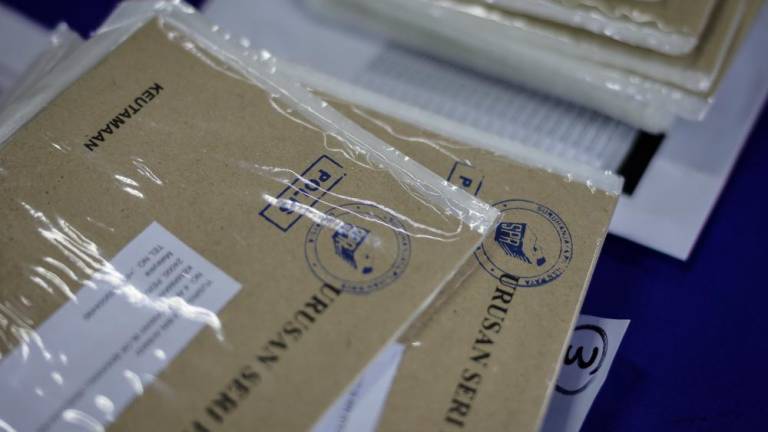PETALING JAYA: Malayan Banking (Maybank) and CIMB have expressed their commitment to collaborate with the government in strengthening banking security and fighting fraudulent activities, in response to Budget 2024.
The budget features a boost in funding for the National Scam Response Centre (NSRC), with the allocation doubling to RM20 million. This is coupled with the establishment of a national fraud portal aimed at expediting the process of freezing and repatriating funds associated with scams.
Banking group CEOs have lauded the government’s effort in combating financial scams.
Maybank Bhd Group president and CEO Datuk Khairussaleh Ramli stated that the allocation of an additional RM10 million to enhance the effectiveness of the NSRC is highly important.
“The banking industry is committed to working closely with Bank Negara Malaysia (BNM) on the setting up of a national fraud portal by mid-2024, where key data collected can be used to detect patterns and connections between the accounts used by scammers,” he added.
Meanwhile, CIMB Group CEO Datuk Abdul Rahman Ahmad said it welcomes the government’s commitment to combat financial scams that will expedite the process of freezing and the repatriation of funds.
“CIMB remains committed to undertaking all necessary measures to further support and strengthen banking security and work together with the relevant authorities and our customers to combat scams collectively,” he said.
In a report, MIDF Research analyst Samuel Woo Choong Yi highlighted the positive impact of higher allocation to the NSRC, stating that “it reduces the incidence of financial scam crimes.”
In May, Securities Commission Malaysia (SC) executive chairman Datuk Seri Awang Adek Hussin stated that Malaysia has experienced a significant increase in online scam cases. He said that between 2020 and 2022, the total number of fraud-related complaints rose by 100%.
“From only 548 complaints in 2020 to 1,124 in 2022, with total losses reaching tens of millions of ringgit. In 2022, almost 60% of all complaints we received were fraud-related,“ he said.
Awang Adek mentioned that the SC identified 267 names on the SC Investor Alert List and blocked 166 websites and 224 social media accounts linked to investment fraud in the previous year.
Furthermore, in the first quarter of this year, 84 additional entities were added to the SC Investor Alert List, and 61 websites and 80 social media accounts were blocked.










